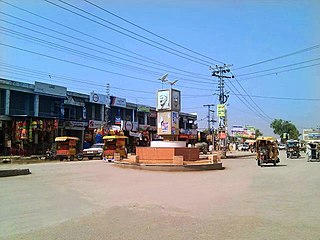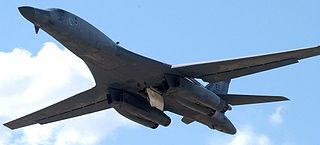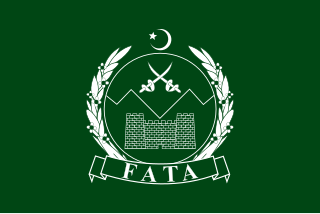The Mohmand or Momand is a prominent tribe of Pashtun people.

Charsadda District is a district in the Peshawar Division of the Khyber Pakhtunkhwa province of Pakistan. Prior to its establishment as a separate district in 1998, it was a tehsil within the Peshawar District. Mohamedzai Pashtuns make up the majority of the population of the district along with other minor tribes settled as well such as Uthmankhel, Mohmand, Kakakhel, Khattak. The district headquarter is the town of Charsadda, which was once part of the Peshawar ex-metropolitan region.

The North-West Frontier was a region of the British Indian Empire. It remains the western frontier of present-day Pakistan, extending from the Pamir Knot in the north to the Koh-i-Malik Siah in the west, and separating the modern Pakistani frontier regions of North-West Frontier Province, Federally Administered Tribal Areas and Balochistan from neighbouring Afghanistan in the west. The borderline between is officially known as the Durand Line and divides Pashtun inhabitants of these provinces from Pashtuns in eastern Afghanistan.

The Tirah campaign, often referred to in contemporary British accounts as the Tirah expedition, was an Indian frontier campaign from September 1897 to April 1898. Tirah is a mountainous tract of country in what was formerly known as Federally Administered Tribal Areas of Pakistan, now Khyber Pakhtunkhwa province.

Ghazi Khan Umra Khan of Jandol, also called "The Afghan Napoleon", was a Pashtun chief on the north-western frontier of British India, who was chiefly responsible for the Chitral Expedition of 1895. He was the Khan of Jandol and captured the state of Dir and reigned as its Nawab from 1890 to 1895. Umra briefly occupied Swat, Chitral and Bajaur. He also took over Kunar and Kafiristan regions of Afghanistan.
The Wur or Wara, meaning small, little or minor, also known as Wur Mamund or Wara Mamund, meaning small, little or minor Mamund or descendants/offspring/children of small, little, minor Mamund, are a Pashtun group. They are a division of the Mamund clan, which is itself part of the larger Tarkani tribe. The Wur are mainly settled in Bajaur Agency in Pakistan, but originally hailed from the Laghman province of Afghanistan.

Mohmand District is a district in Peshawar Division of Khyber Pakhtunkhwa province in Pakistan. Until 2018, it was an agency of Federally Administered Tribal Areas, with merger of FATA with Khyber Pakhtunkhwa, it became a district. It was created as an agency in 1951. Mohmand is bordered by Bajaur District to the north, Khyber District to the south, Malakand and Charsadda districts to the east and Peshawar district to the southeast.
The First Mohmand campaign was a British military campaign against the Pashtun Mohmand tribe from 1897 to 1898.

The Mullagori or Mulagori or Malagori is a Pashtun tribe present in Khyber District, tribal areas in Khyber Pakhtunkhwa, Pakistan. Historically, they are one of the smallest tribes of ethnic Pashtuns. They are considered as a sub-tribe of Momand Pashtun Ghoryakhel confederacy.
The Utmankhel is a Pashtun tribe present in Pakistan, with substantial numbers in Afghanistan. They lie between the Mohmands and the Ranizais of Swat, to the west and south-west of the junction of the Swat and Panjkora rivers. The Utmankhel mostly living in Malakand, Bajaur, Mohmand, Lower Dir, Mardan and Orakzai. The Utmankhel are Pashtuns, part of the Karlani tribal confederacy, who fought against British and Mughals emperors in Pakhtunkhwa. The British regarded the Utmankhel tribesmen as “warlike” peoples and one of the Martial Race. The Utmankhel are a tall, stout and fair race, but their dress and general customs have been assimilated by the neighboring peoples of Bajaur. Utmankhel speak the same dialect of Pashtu called Yousafzai Pashto.

The Gora Prai airstrike was an airstrike by the United States that resulted in the deaths of 11 paramilitary troops of the Pakistan Army Frontier Corps and 8 Taliban fighters in Pakistan's tribal areas. The attack took place late on June 10, 2008, during clashes between US coalition forces and militants from the Pakistani Taliban.
The Halimzai are the largest sub-tribe or clan of the Mohmand Pashtun tribe.

The Mohmand blockade (1916–1917) was a line of blockhouses and barbed wire defences, along the Mohmand border on the North West Frontier by the Indian Army.

The Federally Administered Tribal Areas, commonly known as FATA, was a semi-autonomous tribal region in north-western Pakistan that existed from 1947 until being merged with the neighbouring province of Khyber Pakhtunkhwa in 2018 through the Twenty-fifth amendment to the constitution of Pakistan. It consisted of seven tribal agencies (districts) and six frontier regions, and were directly governed by the federal government through a special set of laws called the Frontier Crimes Regulations.

The Mohmand Offensive also known as Operation Brekhna was a Pakistani military operation against the Tehrik-i-Taliban in the Mohmand Agency area of the Federally Administered Tribal Areas that began in 2009.
The Second Mohmand campaign of 1935 was a British military campaign against the Mohmand tribes in the Northwest Frontier area of British India, now Pakistan. The campaign began in August 1935 where Tanks were used, their first operational use in India, and with help from the Royal Air Force the revolt was suppressed and the Mohmands submitted in October 1935.

In 1917, the British Empire launched a successful punitive expedition against the Mahsud in British India's North-West Frontier in order to deter raids and restore prestige.
The Mohmand Rifles is a paramilitary regiment forming part of the Frontier Corps Khyber Pakhtunkhwa (North) in Pakistan. The name alludes to the Mohmand tribe and the Mohmand Agency. The regiment had a 2020/21 budget of Rs. 2.1 billion and is composed of a headquarters wing with seven battalion-sized manoeuvre wings.










